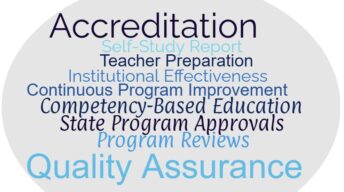Note: Updated on June 19, 2023
National Teacher Shortage
There has been a nationwide teacher shortage in math, science, English language learning, and special education for several years, and it will only get worse unless state departments of education, teacher training programs, and local school districts work together to pilot creative, out-of-the-box ideas. Gone are the days when individuals go into teaching just to “have something to fall back on” and to work the same hours as their children—teaching is a demanding profession, and the classroom can be a tough place to be. As a result of increasing demands placed on teachers, low pay and long hours, and little respect, teachers are leaving the profession in droves and choosing a different career path. And decreasing enrollment within schools of education confirms that many are not even considering entering the teaching field.
States’ Efforts to Fill Classrooms
California education officials recognize this critical teacher shortage, and they are committed to finding a solution. In Accelerating the Pathway to Initial Teacher Certification, I wrote about an initiative approved by the California Commission on Teacher Credentialing that focuses on growing the number of qualified mathematics teachers. At the district level, the Los Angeles Unified School District (LAUSD) is trying to shore up its supply of special education and other hard-to-find teachers through its STEP UP and Teach program. This program provides mentoring as well as financial support to qualified candidates, often those who are already employed in the district as paraprofessional and who have strong ties to the local community.
This “grow your own” approach is similar in many ways to other nationwide efforts such as the Educator Academy, formerly known as the Kansas City Teacher Residency project. Based on the premise that teachers are best trained on-site and under the careful mentoring of experienced teachers in real-life situation, such training is certainly workforce driven. Teacher candidates must demonstrate what they know and able to do on a daily basis. Admission requirements into programs such as the Educator Academy are strict, admitting only those candidates who demonstrate a strong propensity for long-term success as a caring, effective educator. This is as it should be—we want only the very best teaching our children and our grandchildren.
Preparation Quality and Teacher Efficacy
All these pilots share some things in common but there is still something they are missing—and that is a curriculum that is built by the best of the best—those educators and school leaders who have been recognized as high performing. Specifically, teacher candidates should be trained by those who have been highly successful in today’s classrooms and who understand how to meet the needs of students in 2023 and beyond.
Many higher education faculty members can talk theory but who have little teaching experience. Much of the time, their instruction will fall flat on its face. Likewise, a program built by those who haven’t seen the inside of a P-12 school in 20 years simply cannot prepare teachers for 21st Century schools. It’s just not realistic, and yet we see those programs training new teachers by the thousands in every state across our nation. As a result, we are licensing new teachers who discover they have come down with a case of, “What have I gotten myself into?” syndrome. Those teachers leave the classroom in droves, headed for less stressful jobs often with more pay. That’s why about half of all new teachers leave the profession within five years of obtaining their license.
Students deserve a fully qualified, caring, and competent teacher in every class. We’ve got to do a better job making sure this happens.
###
About the Author: A former public school teacher and college administrator, Dr. Roberta Ross-Fisher provides consultative support to colleges and universities in quality assurance, accreditation, educator preparation and competency-based education. Specialty: Council for the Accreditation of Educator Preparation (CAEP). She can be reached at: Roberta@globaleducationalconsulting.com
Top Graphic Credit: www.educationcorner.com

